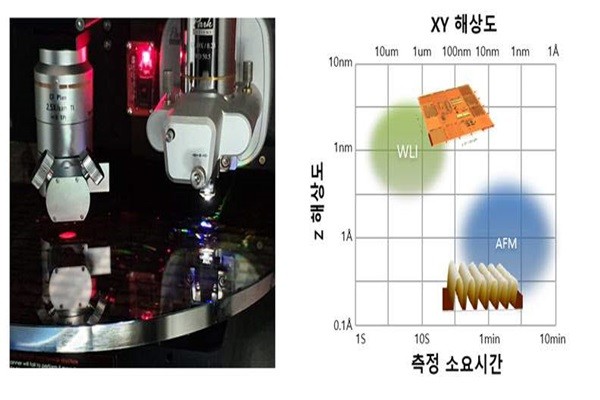South Korea’s companies that specialize in nano-convergence and materials convergence are making outstanding achievements within the global materials, components, and equipment industries. There has been an increase in the number of companies that are recognized for its potential working closely with the South Korean Government and relevant agencies and achieving success after success within global markets. As a result, there have been arguments for continuing “innovative materials, components, and equipment technologies” by looking for promising companies that are hidden.
The Ministry of Science and ICT (MSIT) held a meeting of the materials, components, and equipment technology special committee in April and selected “Nano and Materials Convergence 2030 Program” as a preferential project for a preliminary feasibility study. This is the first case of selecting a project as a preferential project for a preliminary feasibility study according to the Materials, Components, and Equipment Special Act since the government announced its plans to invest and innovate materials, components, and equipment industries last year.
The goal of the 2030 program is to secure original and fundamental nanotechnologies and materials technologies through collaboration between government departments and the private and public sectors. It is similar in concept as the “Nano-Convergence 2020 Program”. This program became a foundation for many South Korean companies to localize materials as it achieved 400% in efficiency compared to how much the government had invested. Based on successful cases of the Nano-Convergence 2020 Program, it is likely that the 2030 program will also be a good opportunity to strengthen capabilities of South Korea’s companies that specialize in nano-convergence and materials convergence.
Yoowon, SMS, and Park Systems are some of companies that achieved outstanding results through the Nano-Convergence 2020 Program.

Yoowon commercialized rolled wiper blades that are used during the rolling process in metalworking. Although it had had difficulties in chasing after the performance of Japanese products, it was able to develop a new product by converging carbon nanotube dispersion technology from Korea Electronics Technology Institute (KETI) with its product after receiving a support from the Nano-Convergence 2020 Program. Yoowon is currently increasing the number of its customers that include top steel companies in South Korea and foreign companies.
SMS, which develops materials for premium TV and smartphone, received a technology from Korea Ceramic Engineering and Technology (KICET) and succeeded in developing world-class high refractive and high intensity prism coating solution and film. It has started to replace Japanese products with its products and it has been growing its business as it hired 8 employees since the end of Nano-Convergence 2020 Program.
Park Systems, which manufacturers atomic force microscopes, developed a microscope that is converged with an optical microscopy technique last year as part of the Nano-Convergence 2020 Program and is currently testing a prototype. It signed supply contacts with multinational semiconductor companies such as Samsung Electronics, Intel, and TSMC.
These companies that had participated in the program agree that they have maximized efficiency by combining their technologies with complete support from the government and the Nano-Convergence 2020 Foundation.
“By participating in the program, we were able to raise funds for R&D that we lacked in the early stage of our company.” said CEO Lee Gil-sung of SMS. “Strict management by the foundation’s evaluation committee has become a foundation for our company’s growth.”
There have been arguments for complete support throughout the 2030 program rather than just selecting it as a preferential project for a preliminary feasibility study in order to increase number of successful stories and to strengthen competitive edge of South Korea’s materials, components, and equipment industries.
“We expect the program to fully support our companies that specialize in nano-convergence and materials convergence as development of the materials, components, and equipment industries has emerged as the hot topic.” said a representative for the industry.
Staff Reporter Kang, Hyeryung | kang@etnews.com